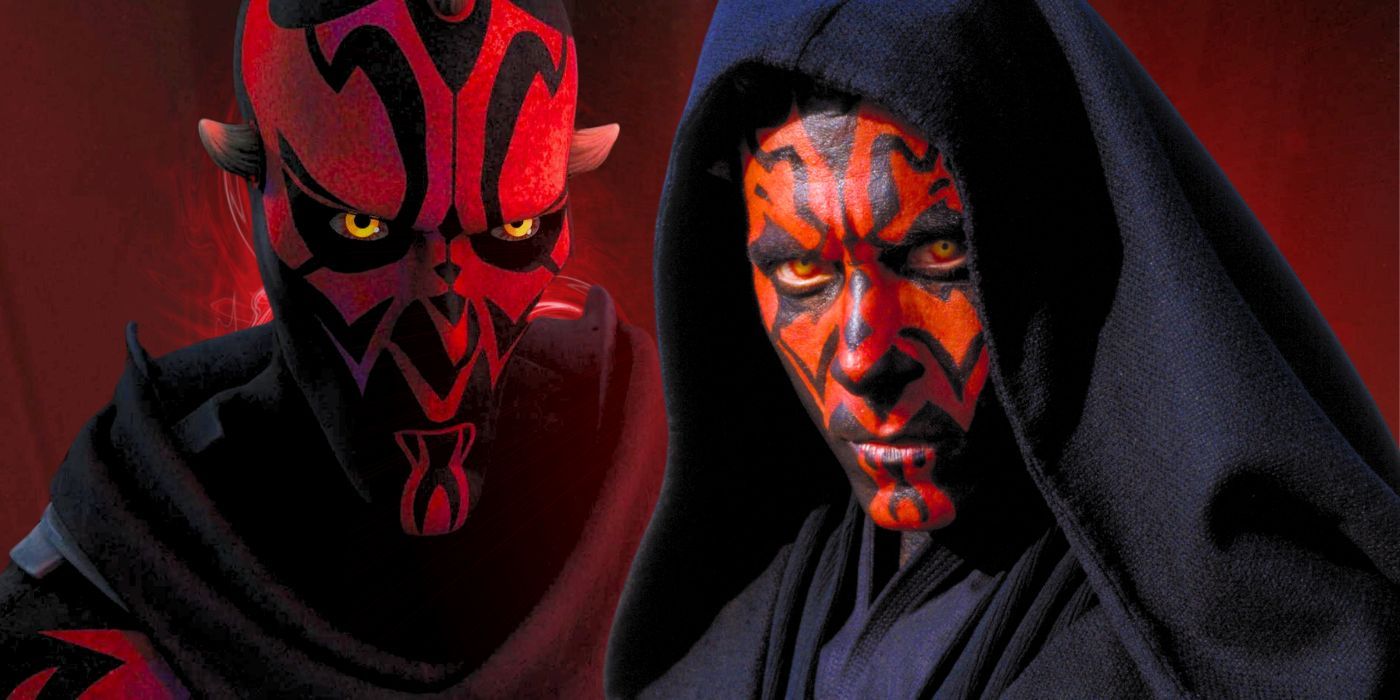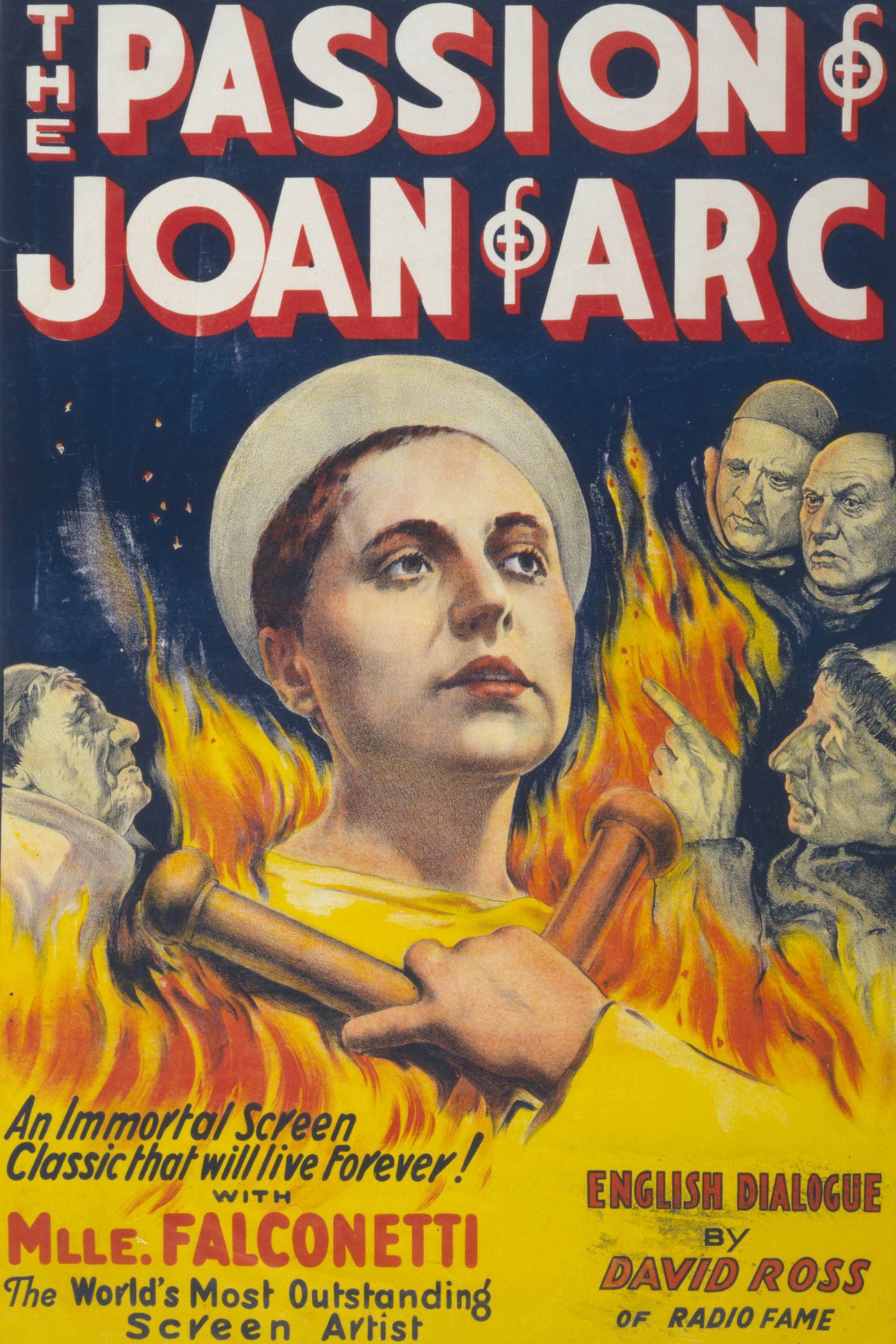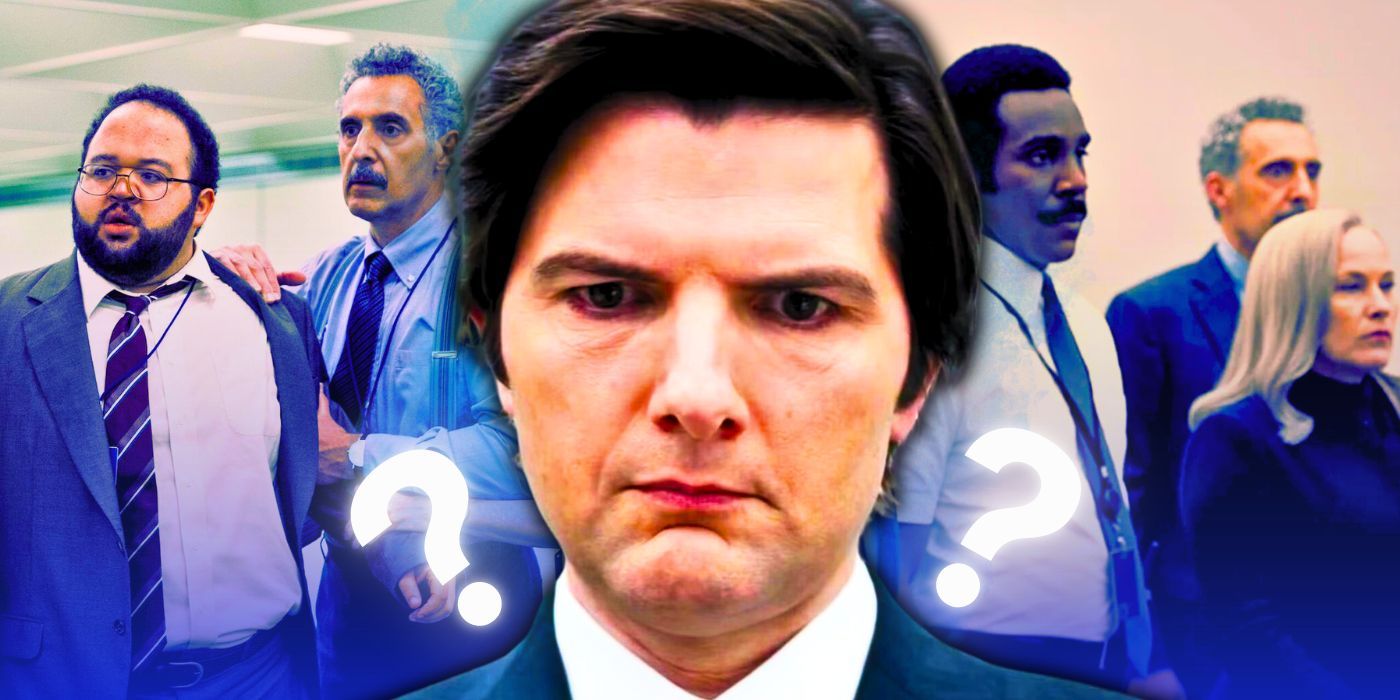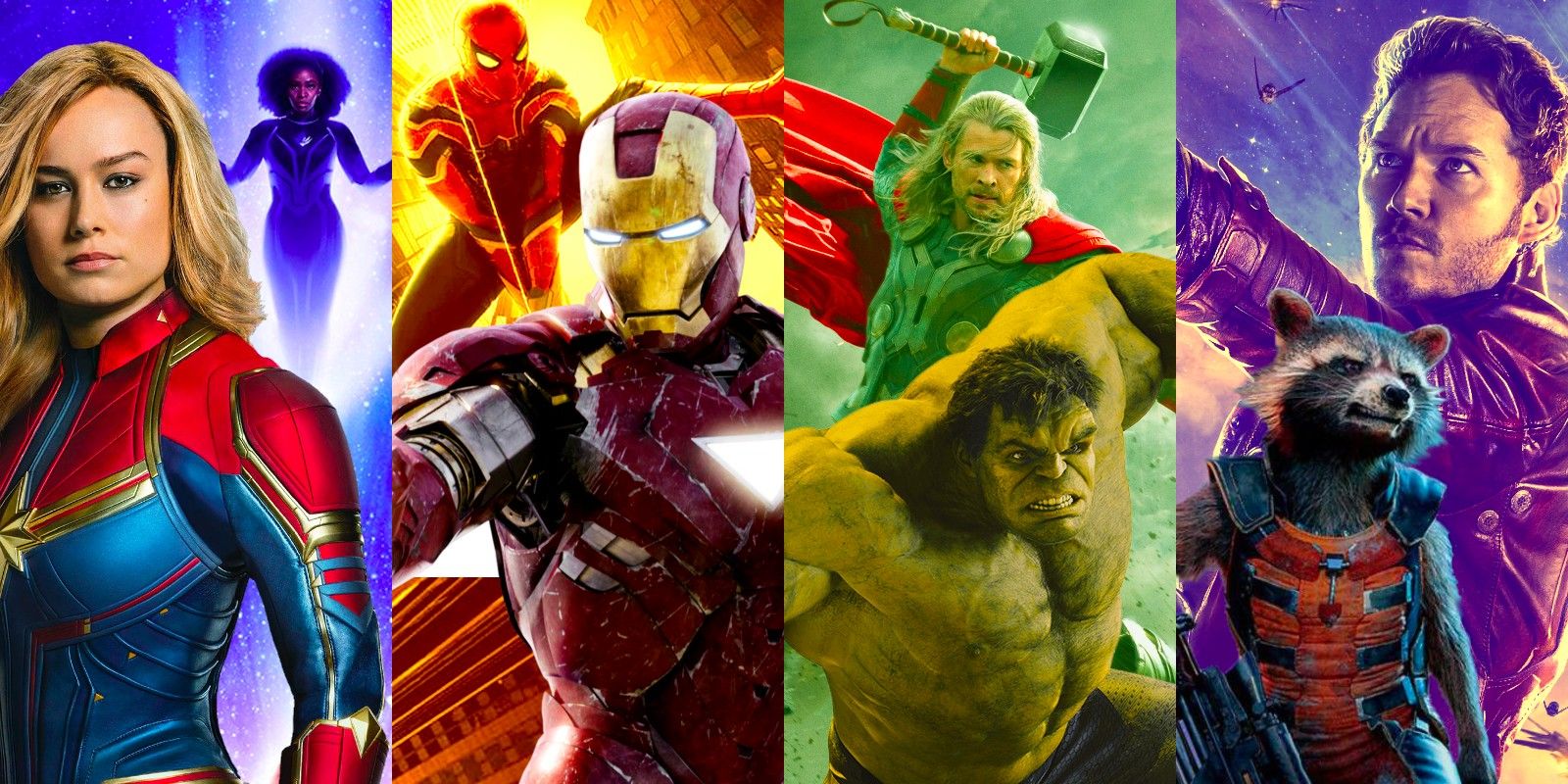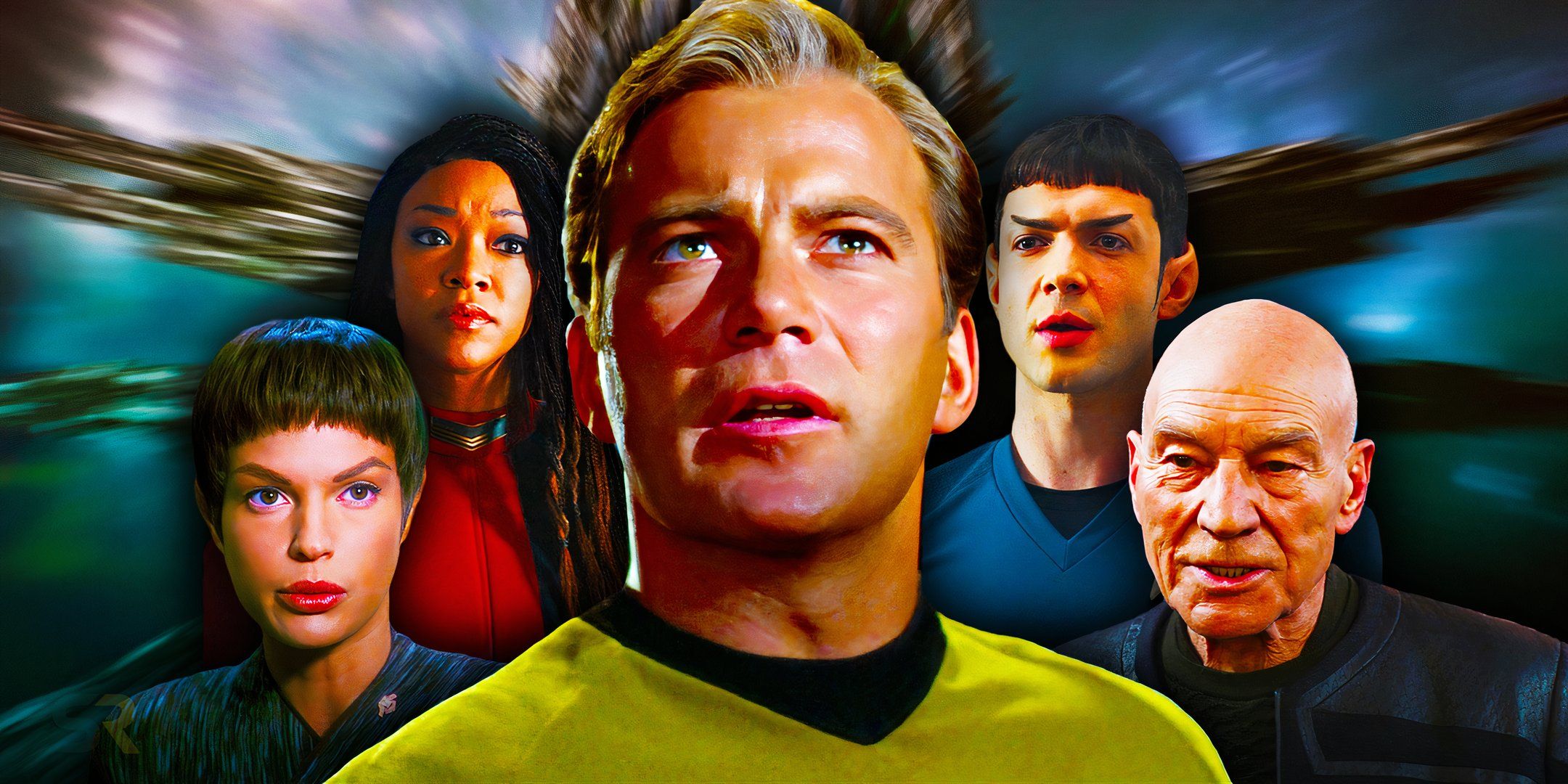The 1970s were a great time for science fiction movies as visual effects were entering a new era of bustling potential and passionate directors were given the artistic freedom required to produce some truly awe-inspiring films. From surrealist experimentation to blockbuster mega-hits, science fiction filmmaking throughout the 1970s was as vast and varied as the universe itself. With a healthy mix of comedy, drama, and even horror genres, the best sci-fi films of the 1970s were categorized by creativity, originality, and passionate enthusiasm.
The best science fiction movies of the 1970s were made by some of the greatest directors who ever lived, including legends of the art form such as Andrei Tarkovsky and Steven Spielberg. Blockbuster sci-fi hits of the 1970s like Star Wars and Alien are still as beloved today as when they were first released and have led to successful ongoing franchises that still have upcoming entries in production. While the landscape of Hollywood may have changed dramatically since these films were released, the best science fiction movies of the 1970s have truly stood the test of time.
10 The Man Who Fell to Earth (1976)
Directed by Nicolas Roeg
The glam icon David Bowie was perfectly cast as the extraterrestrial Thomas Jerome Newton in The Man Who Fell to Earth who crashed landed on Earth and found himself corrupted by human vices. A story of drought, longing, and surrealism, The Man Who Fell to Earth developed a cult following since its release in 1976 and was the best film made by the idiosyncratic British filmmaker Nicholas Roeg, who also made Performance with Mick Jagger. While The Man Who Fell to Earth was too strange to reach a mainstream audience, it stood as an underappreciated 1970s sci-fi gem.
9 Sleeper (1973)
Directed by Woody Allen
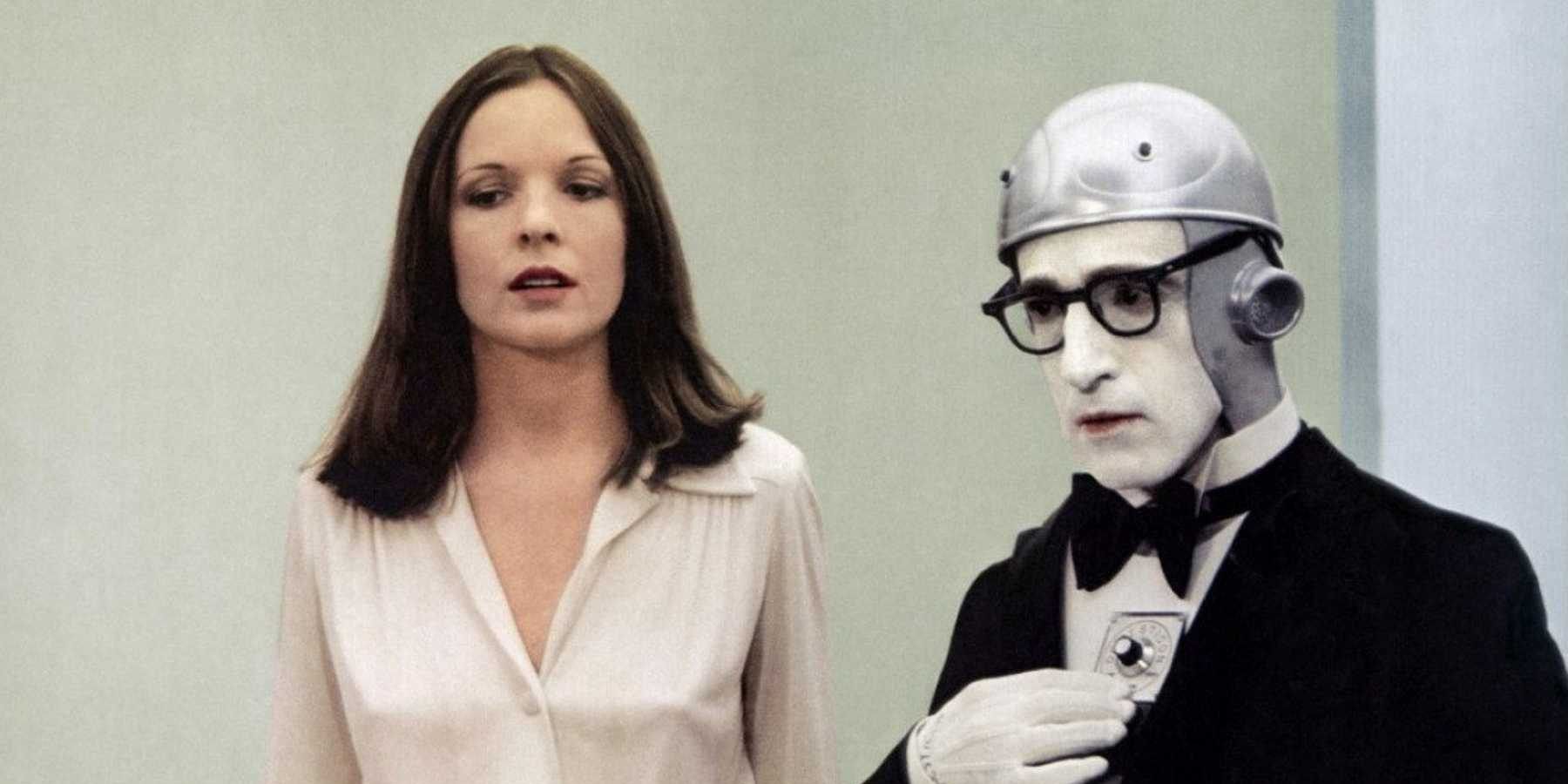
The futuristic comedy Sleeper was an early career triumph for its director, writer, and star Woody Allen who was just beginning to find his unique style and voice. The story of Miles Monroe, a 1970s jazz musician who was unwittingly frozen and woke up in a dystopian society 200 years in the future, Sleeper was full of clever insights, witty one-liners, and over-the-top slapstick humor. Sleeper managed to walk the fine line between the futuristic tones seen in 2001: A Space Odyssey and the outrageous hilarity of the silent movies of Buster Keaton.
8 Escape from the Planet of the Apes (1971)
Directed by Don Taylor
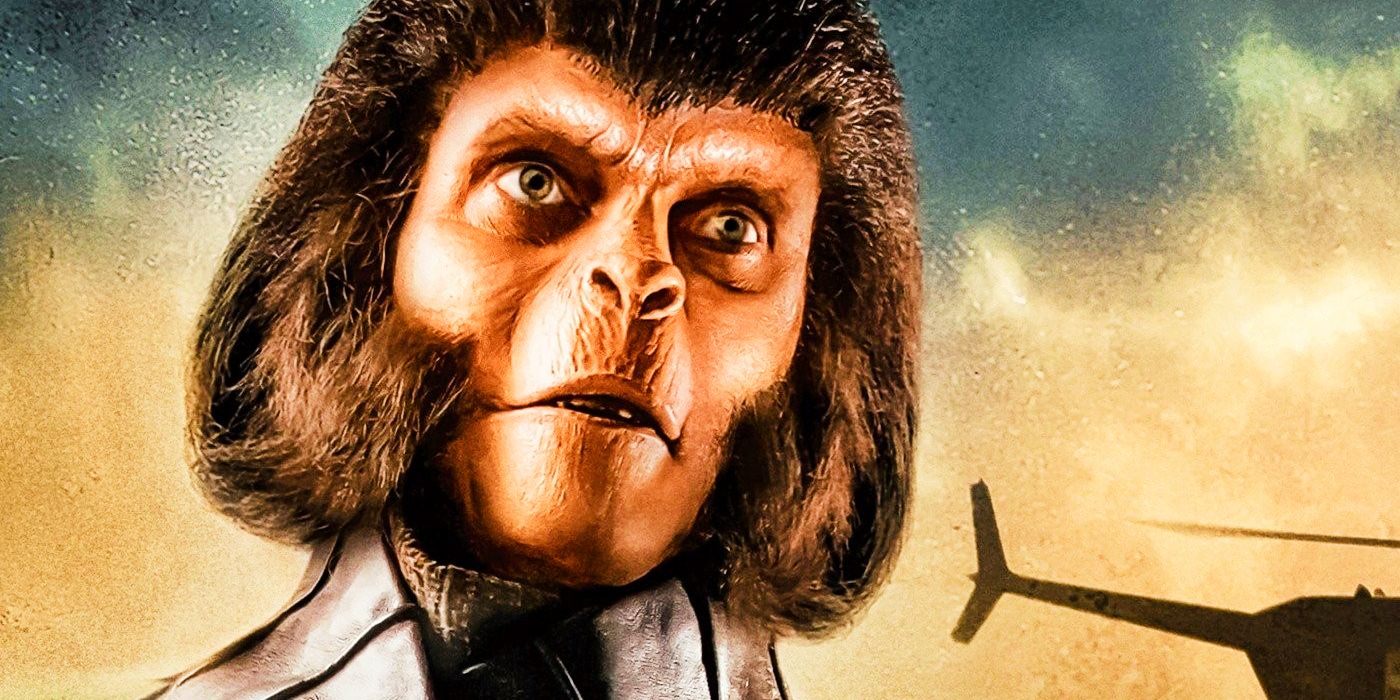
The third movie in the original Planet of the Apes series was Escape from the Planet of the Apes which stood as the most enjoyable sequel in the series as it explored new terrain in a character-driven story. Focusing on the chimpanzees Cornelius, Zira, and Dr. Milo as they crash-landed on Earth in 1973, due to a time warp that propelled them into the past from their ape-dominated future. With a mix of comedy, social satire, and endearingly dated costumes, Escape from the Planet of the Apes laid the groundwork for its 21st-century reboot series set in contemporary times.
7 Soylent Green (1973)
Directed by Richard Fleischer
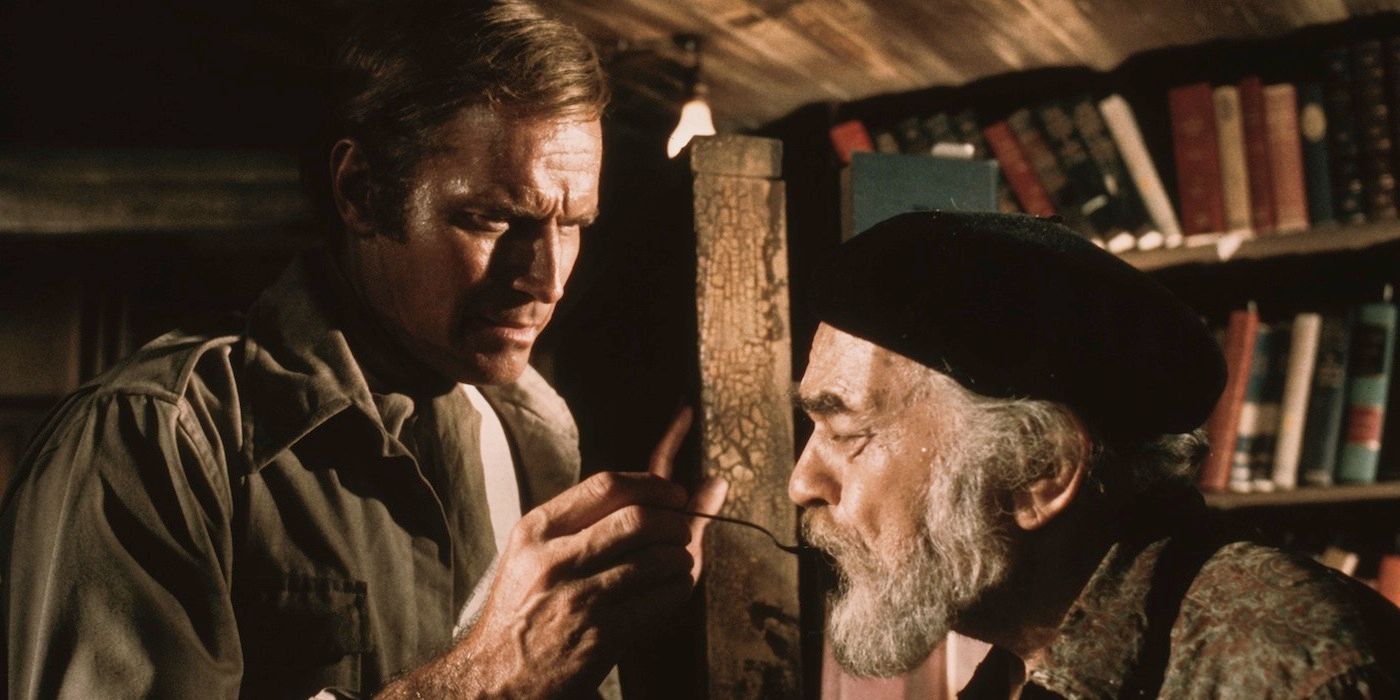
Charlton Heston led the dystopian movie Soylent Green which was a compelling mix of police procedural and science future that explored themes of ecological destruction, pollution, lack of resources, and overpopulation. With a horrific conspiracy involving the food product Soylent Green being made out of humans, Soylent Green was an effective sci-fi thriller that played up the melodrama to deliver a dark, thrilling, and sadly possible nightmarish dystopian future. A social satire, Soylent Green highlighted the impermanence of ethics when issues of starvation and survival are brought to the forefront.
6 Solaris (1972)
Directed by Andrei Tarkovsky
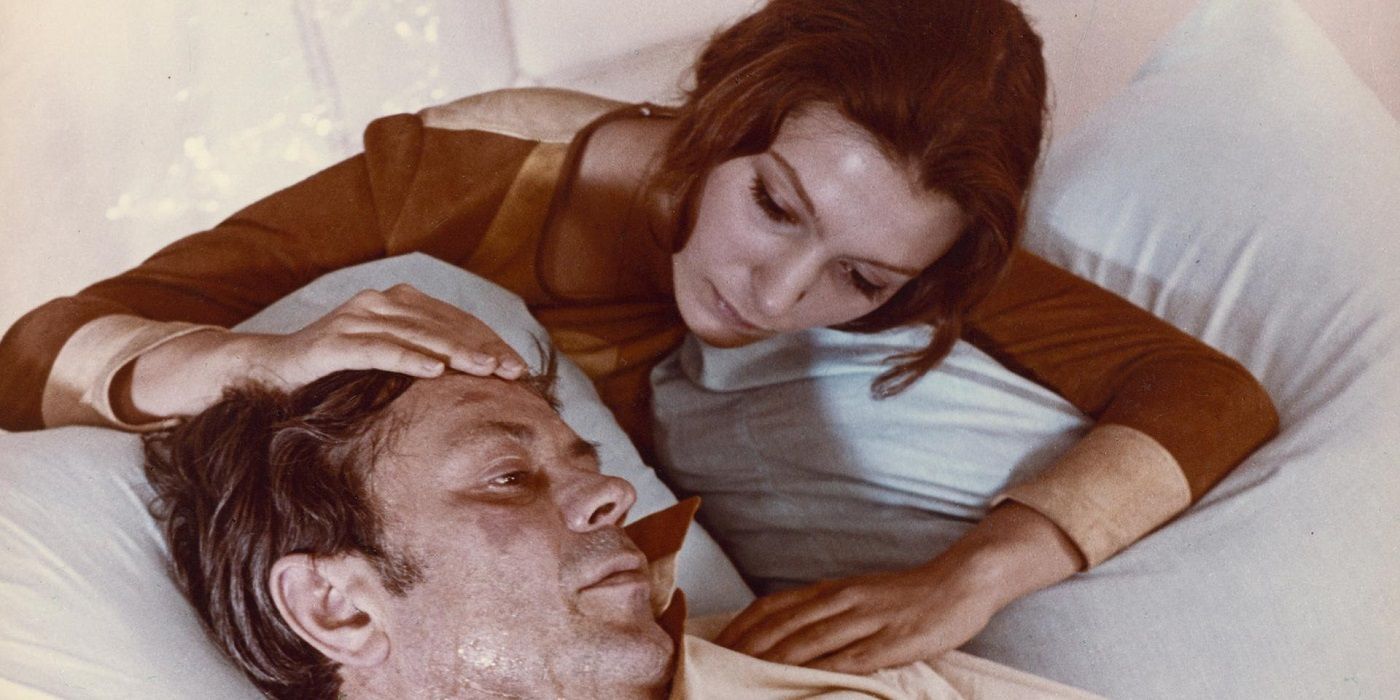
Solaris
- Studio
- Criterion Collection
- Run Time
- 166 minutes
A bleak sense of melancholy hung over Soviet filmmaker Andrei Tarkovsky’s Solaris as three space station scientists fell into overwhelming emotional crises. When a psychologist named Kris Kelvin, played by Donatas Banionis, attempted to enter the ship and resolve the situation, the same mysterious existential despair befell him. A deeply moving examination of the nature of man in the universe and individual inner purpose, Solaris was a slow and calculated picture that rewarded a viewer’s attention and patience. While the nearly three-hour runtime of Solaris may be daunting, Tarkovsky purposely took his time to ensure maximum impact.
5 Westworld (1973)
Directed by Michael Crichton
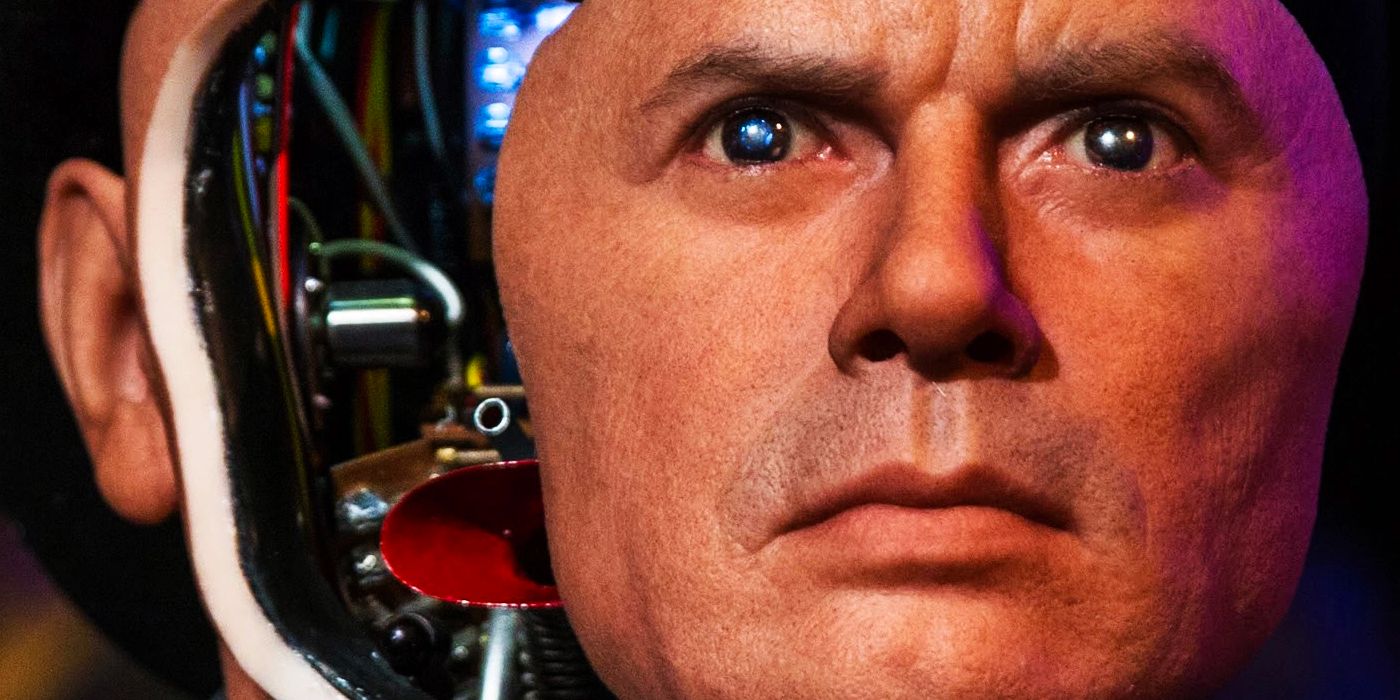
The science fiction Western Westworld was the theatrical directional debut of Michael Crichton, the future writer of Jurassic Park. While Westworld was later adapted into the acclaimed HBO series by Jonathan Nolan and Lisa Joy, the original film was already a wildly entertaining and solid mix of sci-fi and classic Western cliches. Westworld was full of memorable performances, compelling villains, and engaging unique concepts, and, while the true depth of Westworld’s thematic potential was more fully explored in the television series, the theatrical original was still one of the best science fiction movies of the 1970s.
4 Stalker (1979)
Directed by Andrei Tarkovsky
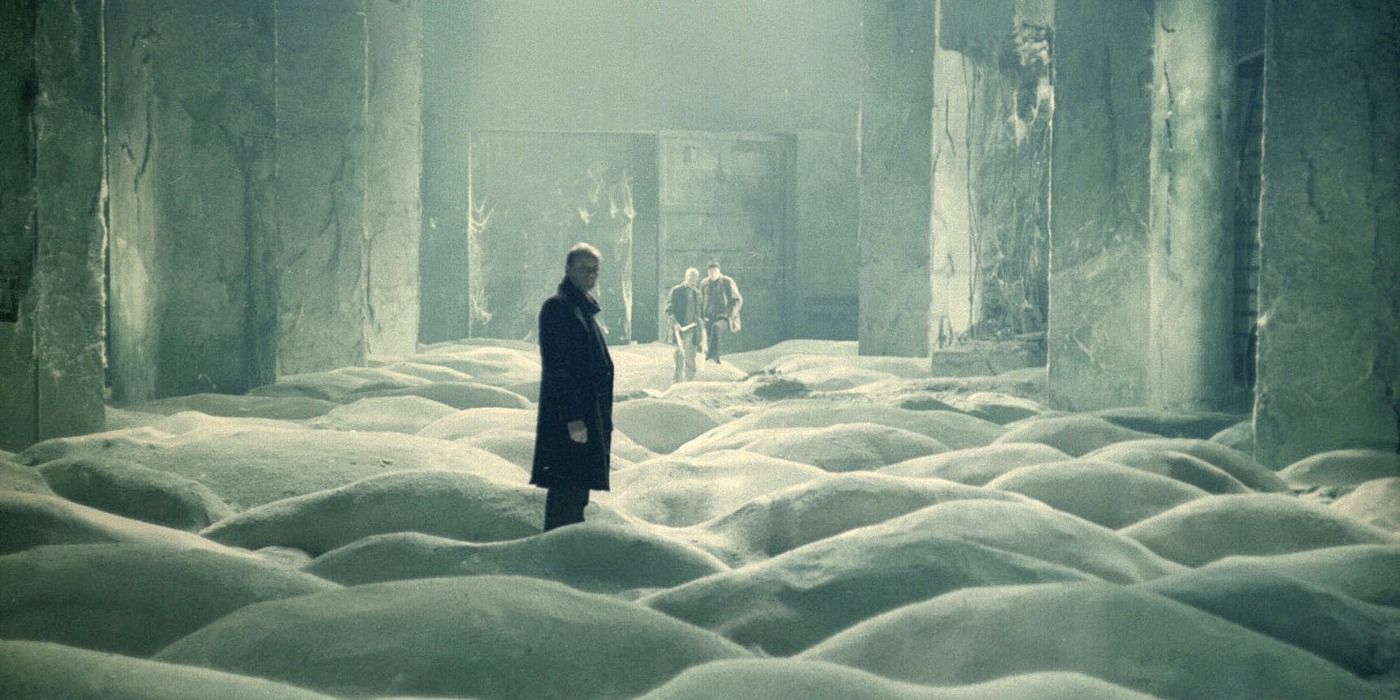
Having already created a sci-fi classic with Solaris, Soviet filmmaker Andrei Tarkovsky finished off the 1970s with what just might be Tarkovsky’s greatest film, Stalker. A haunting masterpiece, Stalker followed a troubled writer and a professor in search of discovery led through the mysterious site known as the “Zone” by a mysterious “Stalker.” A deeply philosophical science fiction film, Stalker explored themes of human consciousness, the nature of desire, and the haunting legacy of trauma in a film guided by themes of faith and love.
3 Star Wars: Episode IV – A New Hope (1977)
Directed by George Lucas
Star Wars: Episode IV – A New Hope
*Availability in US
- stream
- rent
- buy
Not available
Not available
Not available
The film that began the Star Wars franchise, Episode IV – A New Hope tells the story of wistful Force-sensitive Luke Skywalker (Mark Hamill), who longs to leave his home planet of Tatooine to fight the evil Empire. After inheriting his Jedi father’s weapon, a lightsaber, Luke sets off under the tutelage of Obi-Wan Kenobi (Alec Guinness) with smuggler Han Solo (Harrison Ford) to join the Rebellion and face the evil Darth Vader.
- Director
- George Lucas
- Release Date
- May 25, 1977
- Cast
- Mark Hamill , Harrison Ford , Carrie Fisher , Alec Guinness , David Prowse , James Earl Jones , Frank Oz , Anthony Daniels , Kenny Baker , Peter Mayhew , Peter Cushing
- Runtime
- 121 Minutes
As the inception point for one of the largest franchises of all time, it’s easy to forget that when Star Wars was released in 1977 it was just a fantastic science fiction movie with none of the baggage of its extended universe, prequels, sequels, spin-off, novels, and endless lore. The beginning of the Skywalker Saga, Star Wars took influence from pulp heroes like Flash Gordan, Western tropes, and the samurai movies of Akira Kurosawa, and became one of the biggest pop culture phenomena of all time. A surprise blockbuster hit, no one could have predicted the impact of Star Wars.
2 Alien (1979)
Directed by Ridley Scott
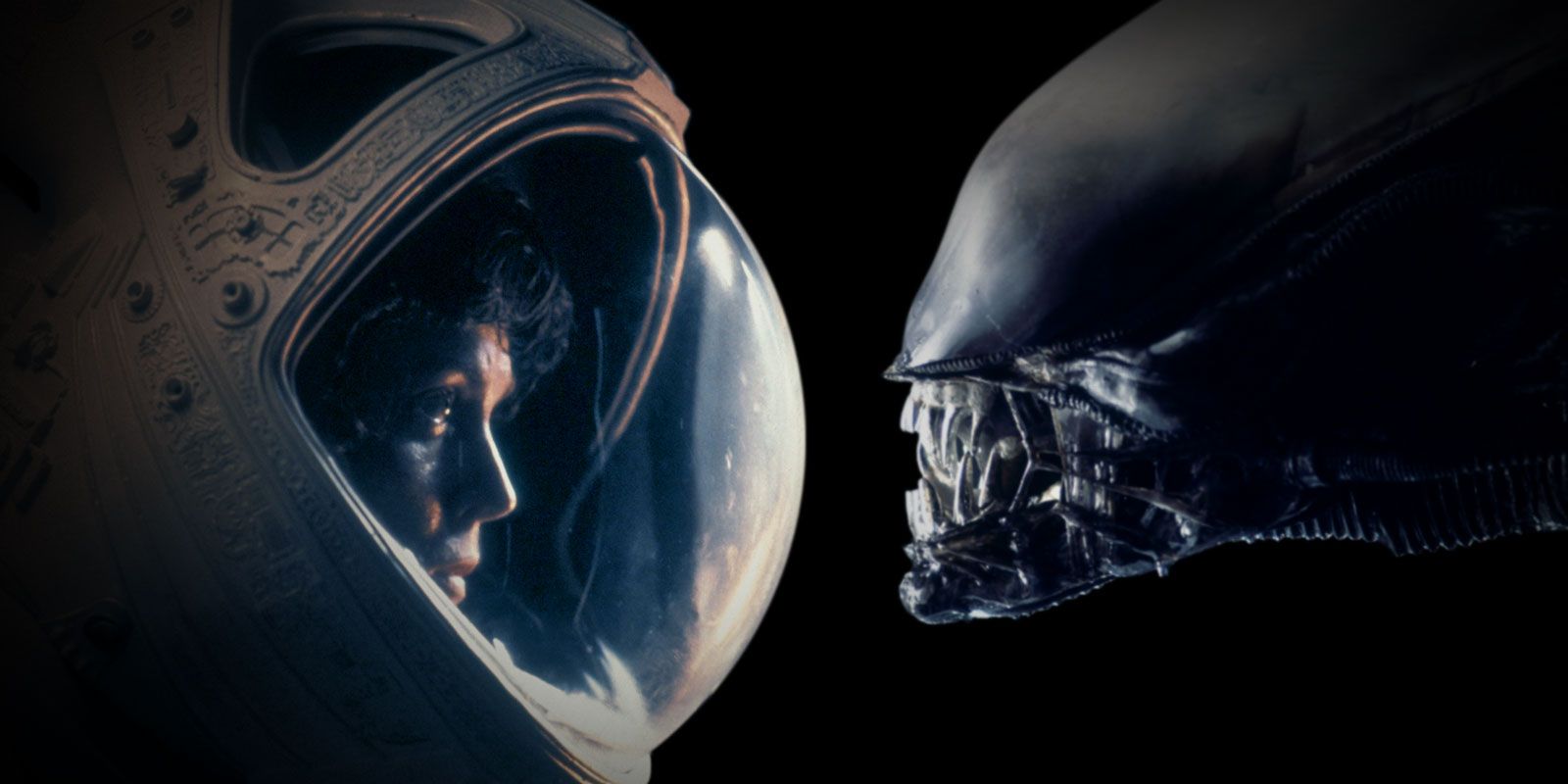
Alien (1979)
*Availability in US
- stream
- rent
- buy
Not available
Not available
Not available
Alien is a sci-fi horror-thriller by director Ridley Scott that follows the crew of a spaceship known as the Nostromo. After the staff of the merchant’s vessel perceives an unknown transmission as a distress call, its landing on the source moon finds one of the crew members attacked by a mysterious lifeform, and they soon realize that its life cycle has merely begun.
- Director
- Ridley Scott
- Release Date
- June 22, 1979
- Cast
- Sigourney Weaver , Ian Holm , John Hurt , Veronica Cartwright , Harry Dean Stanton , Tom Skerritt , Yaphet Kotto
- Runtime
- 117 minutes
A major entry in both the science fiction and horror genres, Ridley Scott’s Alien was one of the most thrilling movies of the 1970s that delivered genuine scares, turned the damsel in distress trope on its head, and helped kickstart a major franchise. Sigourney Weaver as Ripley, the lone survivor of the Nostromo, was one of science fiction’s best protagonists and the terrifying design of the Xenomorph was truly the stuff of nightmares. A tense and well-paced movie, Alien essentially transported a classic haunted house story into a claustrophobic spaceship where the stakes were high, and the fear was real.
1 Close Encounters of the Third Kind (1977)
Directed by Steven Spielberg
Close Encounters of The Third Kind
*Availability in US
- stream
- rent
- buy
Not available
Not available
Not available
Directed by Steven Spielberg, Close Encounters of The Third Kind follows Roy Neary, an electrical engineer whose encounter with a UFO completely transforms his life. Haunted by visions of the UFO and the strange images it showed him, Roy sets out to find the UFO again, which leads him to the Western United States along with others who have been experiencing the same visions. Richard Dreyfuss stars as Roy, with a further cast that includes Teri Garr, Melinda Dillon, François Truffaut, and Bob Balaban.
- Director
- Steven Spielberg
- Release Date
- November 18, 1977
- Cast
- Richard Dreyfuss , Francois Truffaut , Teri Garr , Melinda Dillon , Bob Balaban , J. Patrick McNamara
- Runtime
- 138 minutes
In the nearly 50 years since its release, Close Encounters of the Third Kind has not lost any of its unmatched cinematic impact. A defining film for Steven Spielberg, Close Encounters of the Third Kind reignited science fiction cinema in the 1970s and expertly explored the momentous impact of first contact with alien life with stunning visual effects. An undisputed classic of 1970s science fiction, Close Encounters of the Third Kind stood at the pinnacle of its genre, and its ingenuous use of tones and music highlighted the universal desire for connection throughout life as we know it.
